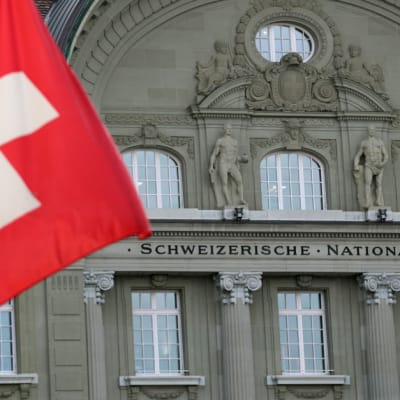Fixed Income Market overview
Despite a vast flurry of geopolitical headlines and turmoil stemming from the Trump administration's domestic and international policy overhaul, fixed income posted another solid month of performance. US duration was the main outperformer, and while US spreads widened into month end the duration impact plus elevated carry was enough to keep high yield total returns positive too for the month. In Europe the duration effect was less positive, but spreads tightened, leaving high yield as the outperformer for the block. Sector trends were driven by tariff news flow sensitivity, with Autos in the IG space taking the brunt of the volatility, as spreads moved in both directions on the shifting headlines. Rewriting of the political status quo meant that the first month of the new Trump administration drove price action through the month, with news feeds being hit by market shifting headlines on an almost daily basis. Broadly speaking, the main talking points fell into one of three categories: Trade tariffs, geopolitics surrounding the Russia Ukraine war, and US fiscal rebalancing.Implementation of President Trump's trade tariff pledge played out erratically through the month, with a range of tariff ideas being floated from blanket 25% duties to reciprocal tariffs to sector targeted penalties. Broadly speaking, the continued threat of implementation by certain deadlines and ultimate extension of these deadlines has resulted in a lot of volatility and noise, but little actual concrete change in trade policy thus far. This keeps us of the view that appetite for sizable tariff implementation is more limited than rhetoric would imply, but threats will continue to be used to exert leverage over trade partners to achieve the administration's wide-reaching goals on international policy. The impact on markets has largely played out through FX markets and risk markets (mainly equities), with the impact being taken as stagflationary in the short term, and growth negative in the medium term. Outisde of international politics, the tariff strategy is also an attempt at increasing revenues domestically to rebalance the fiscal deficit, alongside strict cost cutting measures being implemented by the DOGE department headed by Elon Musk. The latter has manifested as sweeping cuts to government jobs and spending initiatives. The exact details of the savings are unclear, but the numbers touted are unlikely to make a huge dent in the vast size of the US deficit, in our opinion. Yet, a less focused on development for the fiscal balance related to the increasing interest cost of rolling government debt at elevated yields. As such, Treasury secretary Bessant's comments in the month were key, highlighting a strong desire to keep longer term rates in check, namely the 10y treasury yield. How actively the treasury looks to contain 10y yields is likely to be much more impactful for the fiscal trajectory in the coming years, and warrants close monitoring.Arguably the most shocking developments of the month came in the US' stance on the Russia-Ukraine war. Trump's push for a peace deal centered around rebuilding lines with Russia and President Putin, whilst exerting pressure on Ukraine and President Zelensky to accept a number of Russia-backed concessions to bring an end to the conflict. Ultimately this led to a remarkable rewriting of international allegiances, with the US reestablishing ties with Russia and Europe uniting in support of Ukraine. Most notable, this has resulted in a drive for Europe to re-arm though fiscally backed defense and infrastructure spending, with Germany looking to push through removal of the debt brake to increase borrowing. This is despite the election of a new Budestag due to first sit on March 25th, meaning that the constitutional change would need to be pushed through a currently incumbent parliament. The legalities of this will be complicated and be a key theme through March and beyond.Outside of politics, macro-economic data didn't quell stagflation concerns, with inflation surprising higher, whilst soft growth data disappointed to the point that the much-watched Atalanta Fed growth nowcaster fell into heavily negative territory. A lot of this dynamic appears to be driven by front loading of imports ahead of tariffs pushing prices up and generating a hefty trade deficit and hence lower GDP estimates. To us, this underlines the disruptive influence that these sharp policy shifts can cause, even if they aren't implemented in full and used more for leverage internationally.Although the macro landscape has been highly volatile, we're encouraged by the robust performance of fixed income markets, particularly credit which has exhibited limited volatility and continued to produce solid carry returns. Cutting through the noise is ever more challenging, but we continue to try and focus on concrete policy trends and changes alongside the robust balance sheet fundamental picture. For example, the move towards fiscal expansion in Europe, after over a decade of frugality, whilst the US pushes for fiscal rebalancing is a rather monumental shift that would favour duration in the US over Europe, but more supportive of growth assets in the other direction. That said, news flow is fluid and delicately balanced, so we remain nimble to take advantage of overreactions as we see them develop, whilst maintaining a core of defensive carry focused exposure to harvest the benefits of higher yields via fundamentally strong corporates.
Portfolio activity
There were two large new Fallen Angels in February, Celanese with c. USD10bn eqv bonds in issuance and Nissan with c. USD9bn.US chemicals and advanced materials producer Celanese was downgraded on expectation of continued weak demand in its markets, primarily automotive and industrial which will keep financial metrics below that expected for an investment grade company. However, the company has the liquidity and resources to operate through this cyclical weakness and while we do not rule out a further downgrade we expect the ratings to be capped at BB. We note as well that many of the bonds benefit from coupon step up features.Japanese Automotive producer Nissan was downgraded following continued weakness in free cashflow and profitability, exacerbated by an ageing product range and the current uncertainties around global trade in the sector. The company has a turnaround plan in place to take out c. JPY400bn in costs, ensuring profitability at c. 3.5m units and reduce break even level to 2.5m units by 2026. We consider this to be challenging and will monitor developments carefully. dexindex so are therefore capped for January with no issuers leaving the Fallen Angel universe.As we noted in our December commentary when Lar Espana Real Estate entered the universe, it would be a very short stay as the bonds were taken out at par at the beginning of February as we had predicted and at a price somewhat lower than where the bonds could be bought in December. Need less to say we did not invest.
Performance and characteristics
The fallen angel strategy is a high quality high yield strategy with an average rating of BB.The strategy modestly out-performed the high yield index in February before fees with a positive contribution from our holdings in real estate (Aroundtown) and utilities (Thames Water) being almost offset by weakness in TMT (Xerox, Vodafone, Eutelsat & Telecom Italia). Thames benefitted from positive sentiment within the UK water sector and particularly the court's agreement to the proposed restructuring of the company. Eutelsat has been somewhat volatile on competition from Elon Musk's Star Link offering although there has been positive developments since month end with Eutelsat potentially a beneficiary from the US (& SpaceX) withdrawal from the Russian/Ukraine conflict. Year to date performance is a little behind that of the high yield index largely reflecting the under-performance of our larger holdings in the telecom sector Vodafone, Eutelsat and Telecom Italia. Outlook: Trump rhetoric around tariffs, Russia/Ukraine & Israel/Palastine and other countries responses is adding to uncertainty. Industrial, particularly automotive demand is softening and this is having an impact on companies - both Fallen angels this month arguably came from this area. A belief that rates may stay higher for longer may well also impact on companies' ability and cost to refinance placing more pressure on ratings so while we still do not expect a huge increase in Fallen Angels in 2025 our expectations are probably a little higher than they were at the end of last year.









